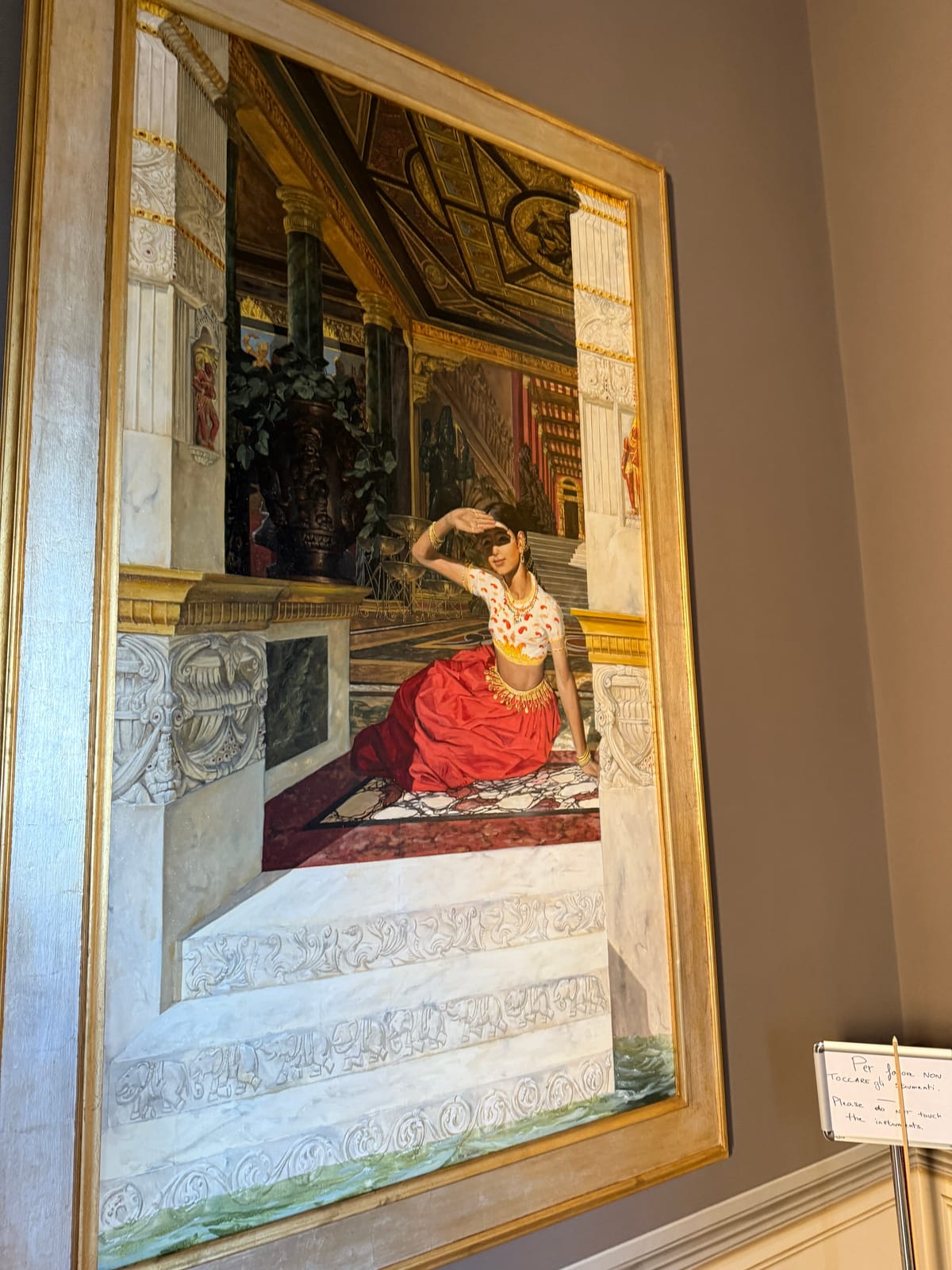A lover who once loved me

They once called it love, but it was never enough for them. With a heart grown heavy, I asked if this was truly the end, and they confessed: their love for me was gone. They could no longer bear the turmoil I carried—the constant rise and fall of moods, the endless uncertainty. And as those words struck me, I slipped into memory, back to our beginning, where we first wandered together.
I can still see it: a slow spring, restless with dry air and hazy nights. The sun seemed far away, veiled in dust, and yet the evenings brimmed with fragrance—jasmine, smoke, and the promise of conversations unending. People drifted in their light spring clothes, alive with the hunger to meet, to be seen, to fall into chance connections. The air itself held a quiet expectation.
You were there, seated beside an older woman, a mother-like figure though not your own. She was steeped in music, drawn to sound, and carried herself with an authority that pressed against you, overshadowing your voice. She probed me with sharp questions—about my life, my work, my means—while you drifted in silence, your eyes wandering into spaces beyond the room. Even then, I felt a distance in you, though my invitation was not through words but through the rhymes of my flute, which you never truly cared for.
Time moved as it always does, yet we crossed paths again. Heat thickened, nights grew heavier, and our glances deepened. You told me once that my eyes were beautiful. A signal, I thought, that I could take you home. And so I did. We crossed into intimacy with a fire too quick, too raw, and soon after, the sweetness turned bitter with accusations and doubt.
Still, we lingered in one another’s lives. Nights of passion followed by nights of absence. You disappeared into shadows, leaving me to wonder who “they” were—these friends you spoke of but never named. I dreamt many answers, but none gave peace. We were falling in love with shadows, each of us reaching for someone else even while holding on to one another. Like two rivers at a confluence, we flowed together, but both of us knew the sea awaited—where all waters merge and nothing stands apart.
Conversations twisted and tangled. You asked what I wanted, and I answered with silence—“just friendship,” I said, though I kept feeding the connection that bound us. You asked for truth, yet held your own in secrecy. I gave you my days and nights, and you called them wounds. You wove threads of “us” in your mind while I drifted, pulled by tides I could not name.
Later, our story broke into another season: mountains rose around us, green and wet with summer rains. The air was thinner, evenings wrapped in mist, and nights carried the fragrance of pine and distant storms. Life there was slower, softer, as though the world itself invited us to heal. And yet even amidst that quiet, our rhythm was unsettled.
It was there that everything moved in a hurry. No time to pause, no time to breathe. Suddenly, I found myself staring at a choice in stark contrast—to be or not to be. To be: to take on the weight of a daughter, to share responsibility, to attempt a partnership beyond passion. Or not to be: to admit unpreparedness, to leave you and her to another fate.
And I chose both. In one breath, I longed to be—to step into the role of father, of partner, of man. In the next, I recoiled and chose not to be—retreating into solitude, into the safety of half-measures. I lived in that contradiction, carrying the guilt of indecision, never fully present, never fully gone.
For a time, distance carried us. But then we decided we should meet again, as if another encounter might set things right. When we did, it failed—massively. It collapsed under the same hurried spirit that haunted us before. Every word became a burden, every sentence a crack opening in you. I wanted the conversation whole—an honest reckoning, a dialogue of why and how. But you had nothing to ask, nothing to reason with. Your every reply was the same refrain: “Let’s end this.”
Why such haste? Six weeks—that was the sum of our time together, and yet you pressed me to resolve it as though love and responsibility could be signed off like a contract. There was no room for silence, no space to linger, only impatience driving us apart.
And in that new space, the discord sharpened. You had not been helped to find your way, to move through the unfamiliar paths, and every step felt foreign, heavy with frustration. Instead of leaning closer, we drifted further, your impatience clashing against my hesitation. Whatever possibility remained between us dissolved there.
So perhaps it is true that you once loved me. Perhaps I even loved you, in my fractured way. But our love could not survive the weight of haste. Love cannot be rushed; it asks for patience, for listening, for the courage to wander together until the way becomes clear.
Now, I see the sorrow clearly: you are back where you once were, standing in the same circle you stepped away from when you first turned toward me. It is as if nothing has changed, as if all that passed between us was only a detour.
I was the detour—the flicker of another possibility, the brief unsteady flame.
And now you have returned to where you began.
That is the final grief: not that you stopped loving me, but that your life continues in its loop, while mine still lingers in the echo of what might have been.